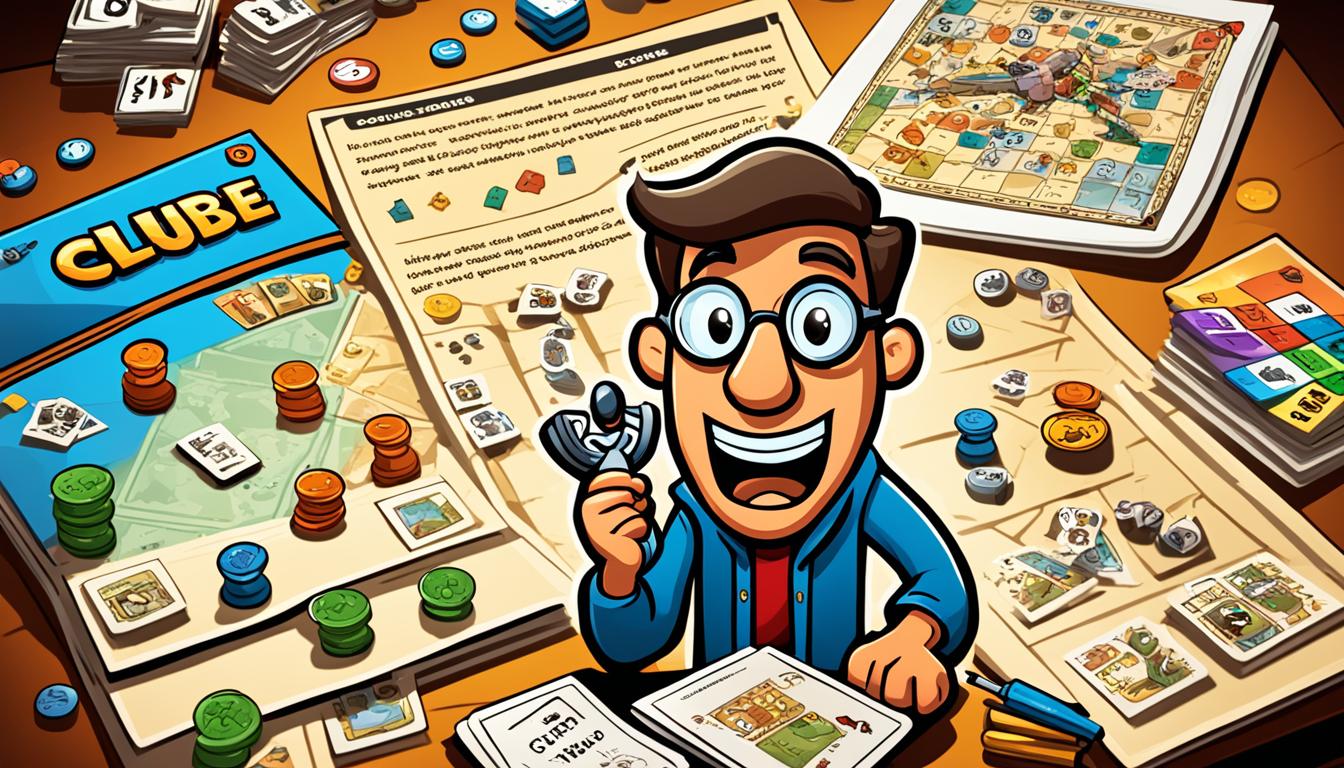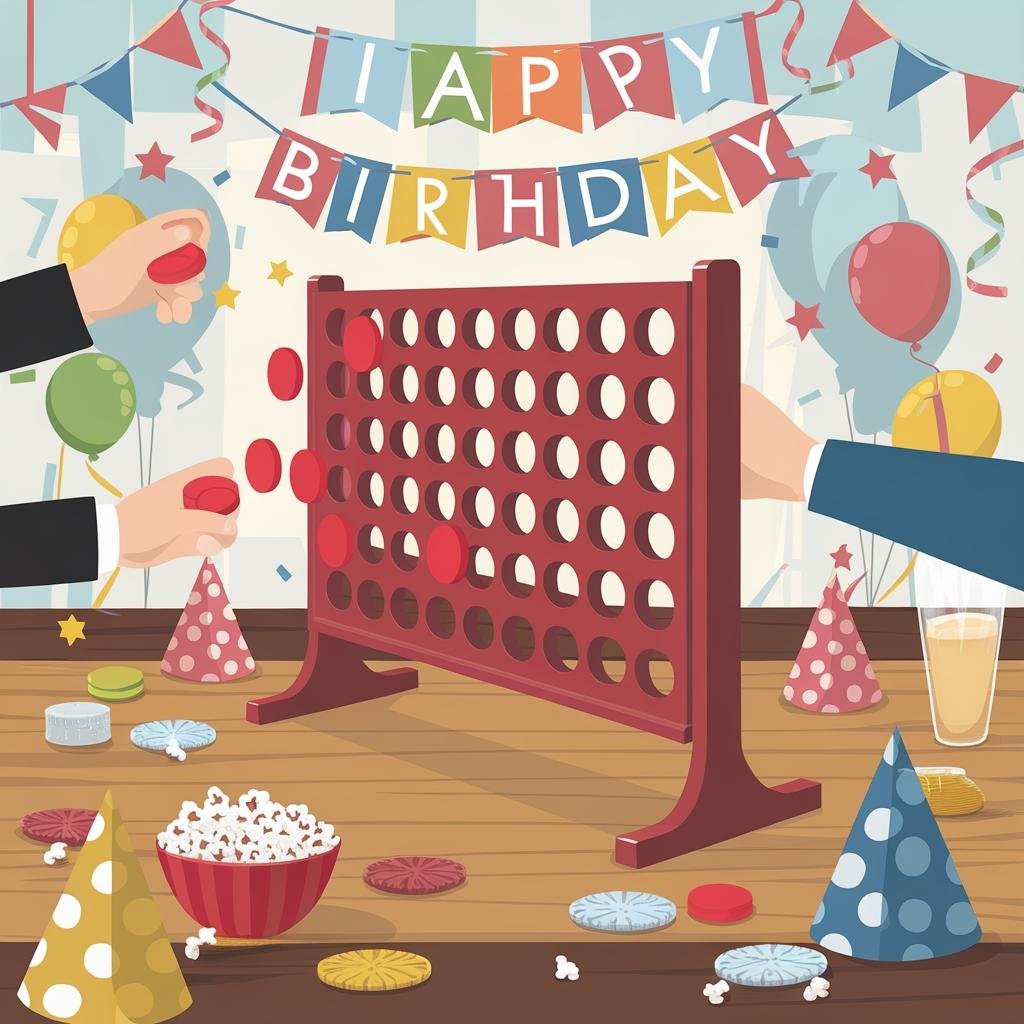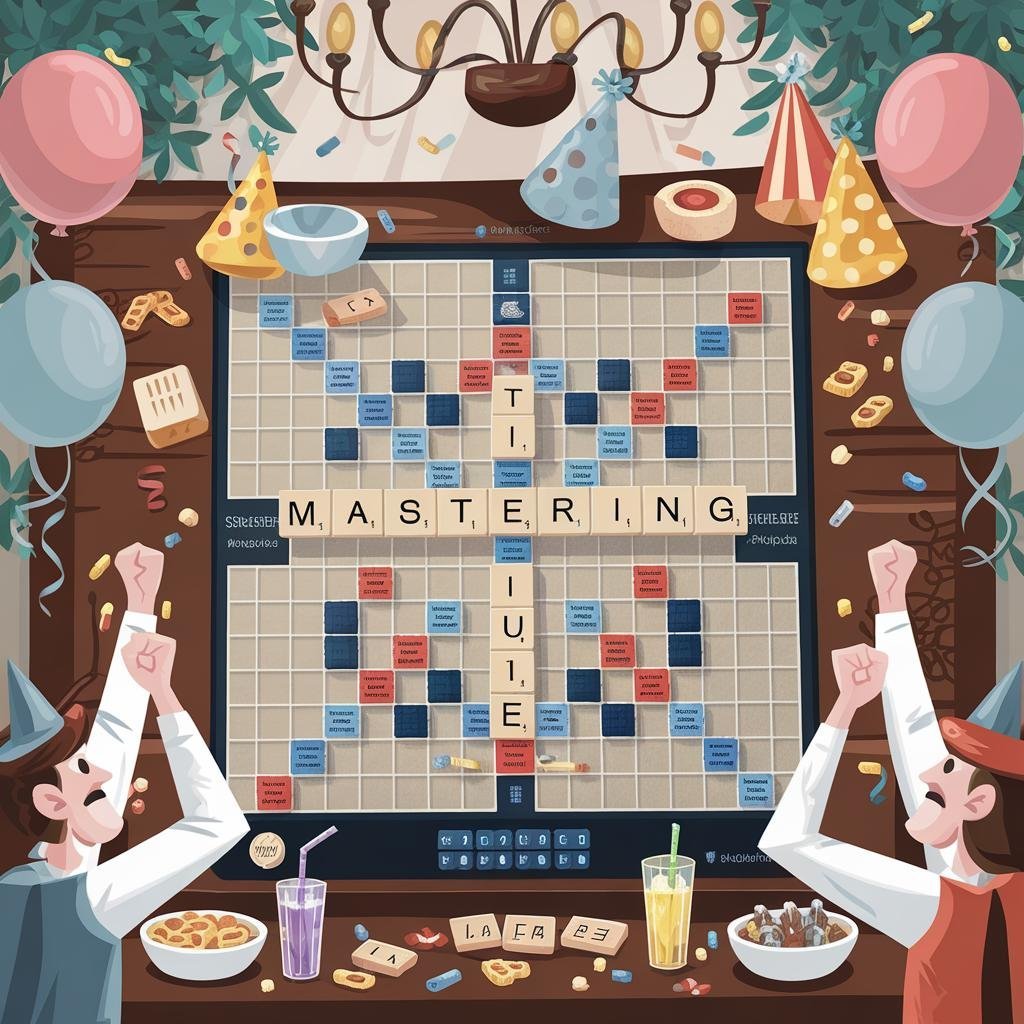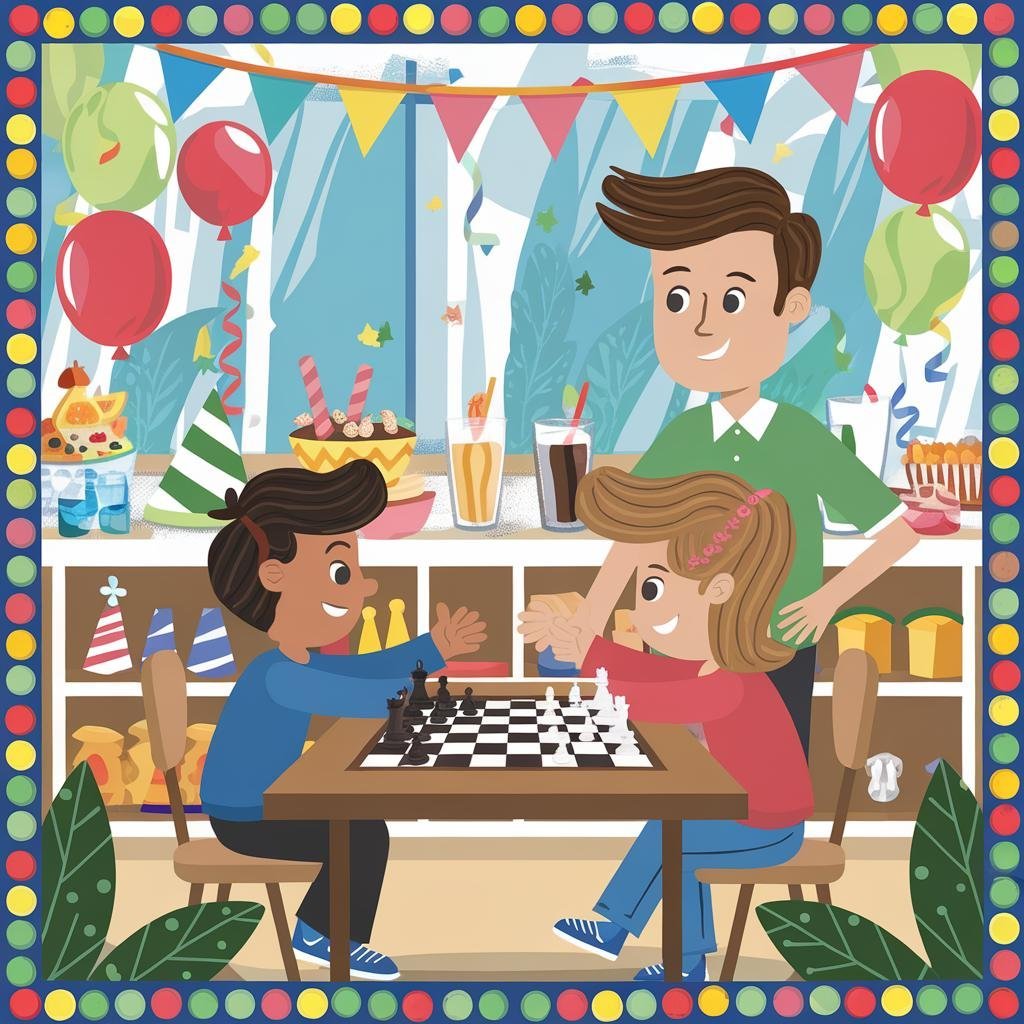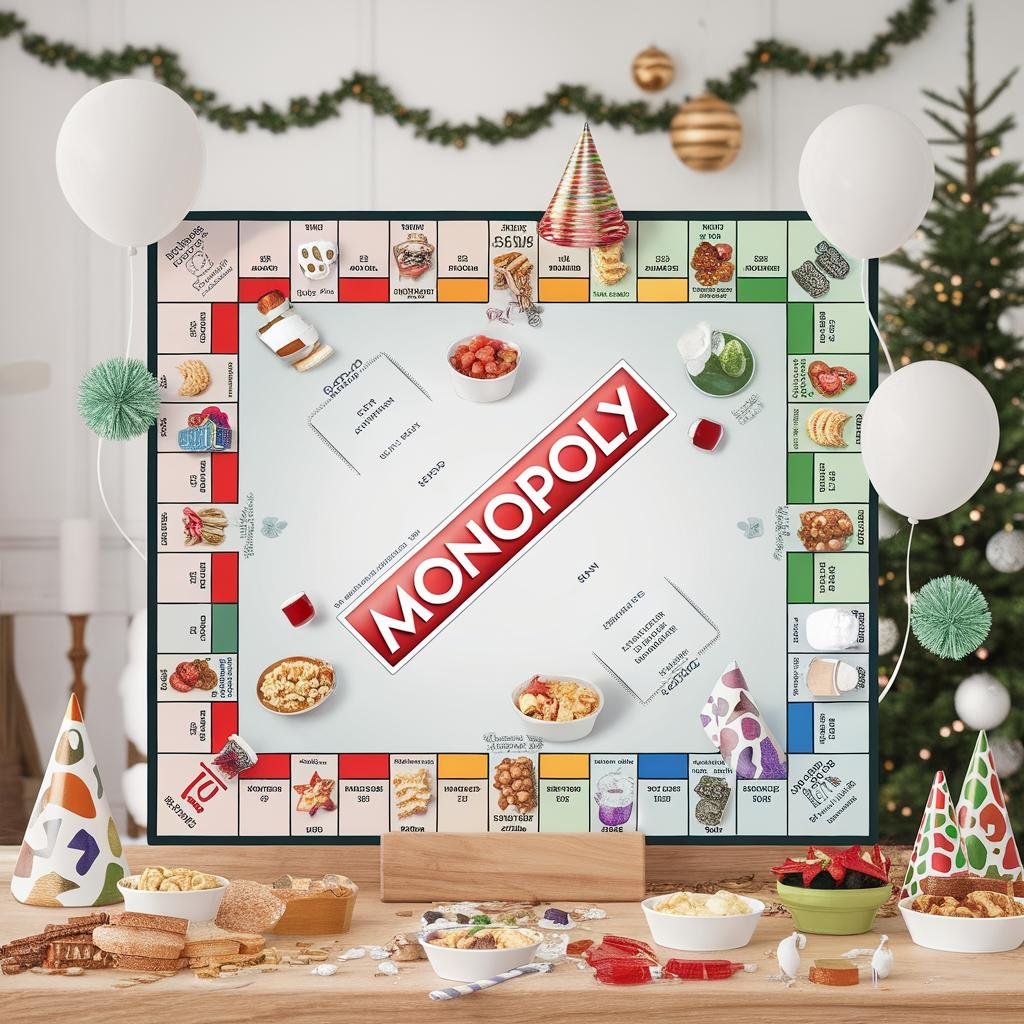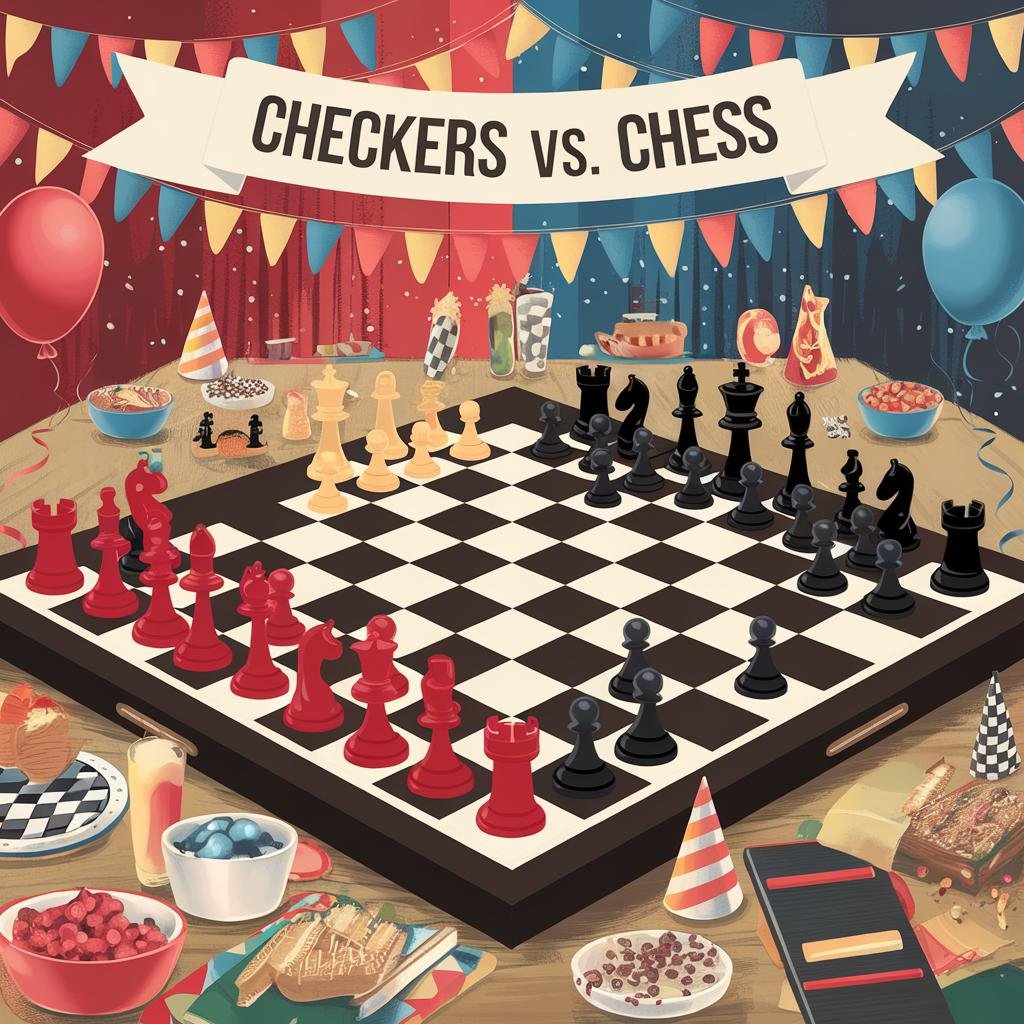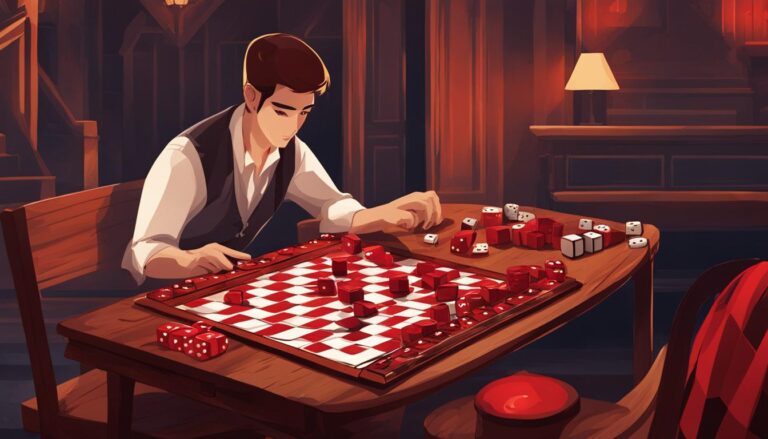Disclosure: This Post Contains Affiliate Links; We earn a commission on purchases.
Welcome to our guide on Clue strategy! Whether you’re a novice investigator or a seasoned detective, developing effective clue strategies can greatly improve your chances of solving the mystery and emerging victorious in this classic board game. In this article, we will explore various tips, techniques, and secrets to help you sharpen your clue-solving skills and master the art of deduction.
Key Takeaways:
- Effective clue strategies can enhance your gameplay and increase your chances of solving the mystery.
- Consider key steps to take before the game begins, including seating arrangements and character selection.
- Develop strategic approaches for your turn, including recordkeeping, making smart suggestions, and knowing when to bluff or make a final accusation.
- Pay attention to other players’ actions and gather valuable information during their turns.
- Master the art of advanced recordkeeping, note-taking, and making bold suggestions to gain a competitive edge.
Table of Contents
Before Play Begins
Before diving into the intriguing world of Clue, take a moment to set yourself up for success. These key steps will help you develop a strong clue strategy, giving you an edge over your opponents.
Seating Arrangements
Consider your seating placement carefully. Sitting to the right of a strong player can provide you with valuable insights during gameplay. By observing their moves and deductions, you can adapt your strategy accordingly.
Choosing Your Character
When selecting your character, Mrs. Peacock can offer strategic advantages. Her starting location near the Conservatory allows you to enter a Room and make a suggestion earlier than other characters. This can expedite the flow of information and potentially help you solve the mystery faster.
Preparing Your Scoresheet
A well-prepared scoresheet is essential for efficient clue-solving. Before the game begins, ensure your scoresheet is set up correctly. This includes creating a clear header, filling in the player columns, and using a notation system to track the cards each player may hold. A well-organized scoresheet will aid your memory and assist you in making accurate deductions as the game progresses.
Start your clue-solving journey on the right foot by implementing these strategies before play begins. With a solid foundation in place, you’ll be well-equipped to tackle the mysteries that lie ahead.
When It’s Your Turn
When it’s your turn to make a suggestion, there are several clue strategy techniques you can employ to increase your chances of solving the mystery. Here are some tips to help you make the most of your turn:
- Basic Recordkeeping: Keep track of who can and cannot disprove your suggestion. This information will help you narrow down the possible solution.
- Strategic Choices: Make your suggestions strategically. Start with a room that you have not entered yet or one that is close to your current position. This clue strategy technique can help you gather important information and eliminate possibilities.
- Bluffing vs. Final Accusation: Understanding when to bluff and when to make a final accusation is crucial to winning the game. Bluffing can throw off other players and lead them astray, but making a final accusation means taking a risk. Consider the information you have gathered and make a calculated decision.
By utilizing these clue strategy techniques, you can maximize your turn and move closer to solving the mystery. Remember to stay observant and analyze every clue carefully.
Example:
“When it’s your turn, think strategically and make your suggestions count. Keep a detailed record of who can and cannot disprove your suggestion. This will help you eliminate possibilities and narrow down the solution. Make use of the different room options and choose strategically. Bluffing can confuse other players and lead them off track, but be careful not to make a false accusation too early. Analyze the clues, trust your instincts, and make a final accusation when you have strong evidence. Being mindful of these clue strategy tricks can give you an edge in the game.” – Karen, experienced Clue player
| Clue Strategy Techniques | Benefits |
|---|---|
| Basic Recordkeeping | Helps narrow down the solution by keeping track of who can and cannot disprove your suggestion |
| Strategic Choices | Gathers important information and eliminates possibilities |
| Bluffing vs. Final Accusation | Allows for strategic deception and calculated risk-taking |
When It’s Another Player’s Turn
When it’s another player’s turn, pay close attention to their actions and the information they reveal. This can provide valuable insights that can help you in your quest to solve the mystery. Keep an eye on the dice roll as well as the suggestion made by the player, as these details can give you important clues to work with.
One effective clue strategy technique is to use notation groups on your scoresheet. This involves grouping together cards that have been shown or mentioned during the game. By doing this, you can track which cards each player may hold and make more informed deductions.
If a player makes a suggestion that you can disprove, it’s important to do so strategically. Instead of showing just one card that matches the suggestion, consider showing a different card that could potentially confuse the other players. This clue strategy technique can help to keep your opponents guessing and give you an advantage.
However, there may be situations where nobody can disprove a suggestion. In this case, it’s important to think tactically. Instead of showing cards that you hold, consider showing cards that you know other players have already seen. This clue strategy technique can help to throw off your opponents and minimize the information they have to work with.
Remember, when it’s another player’s turn, it’s not just about observing their actions, but also strategically using the information you gain to further your own clue-solving skills and increase your chances of solving the mystery.
Clue Strategy Tips
Here are some clue strategy tips to help you make the most of another player’s turn:
- Pay close attention to the dice roll and the room in which the player makes a suggestion. This can give you important clues about the location of the crime.
- Use notation groups on your scoresheet to track which cards each player may hold. This can help you make more accurate deductions.
- If you can disprove a suggestion, strategically choose which card to show. Consider showing a card that could potentially confuse other players.
- If nobody can disprove a suggestion, strategically choose which card to show. Consider showing a card that you know other players have already seen to minimize the information available to them.
By employing these clue strategy techniques, you can turn another player’s turn into an opportunity to gather valuable information, strengthen your clue-solving skills, and increase your chances of solving the mystery.
Advanced Recordkeeping
Taking detailed notes throughout the game is crucial for clue strategy techniques, improving clue solving skills, and mastering clue strategy. By recording each suggestion made, noting who showed cards to each opponent, and keeping track of which cards you have shown to each player, you can make more informed decisions and gain a competitive edge.
Record Each Suggestion Made
To effectively analyze the game progress, it’s important to record each suggestion made by the players. Maintain a separate list and jot down the details of each suggestion, including the character, room, and weapon mentioned. This record will help you identify patterns and narrow down the possibilities as the game progresses.
Note Card Exchanges
Pay close attention to the card exchanges happening during the game. When a player shows a card to an opponent, make a note of it. This information will provide valuable insights into which cards are in play and which ones have been ruled out. By tracking these exchanges, you can eliminate options and focus your deductions on the remaining possibilities.
Track Cards Shown to Each Player
As you show cards to other players, keep track of which cards you have revealed to each player. By doing so, you can deduce which cards players are more likely to hold, enabling you to make strategic choices when suggesting solutions. Your record will prevent you from suggesting solutions that involve cards you have already shown to a particular player.
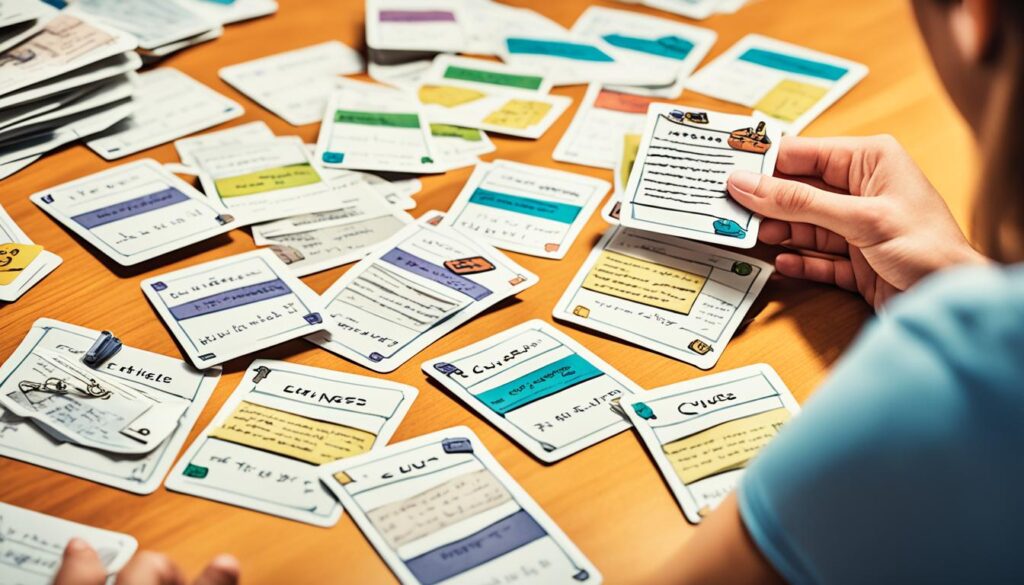
Dick Moves
While playing Clue, it’s essential to maintain a fair and respectful gameplay environment for everyone involved. Engaging in unsportsmanlike behavior or employing underhanded tactics, referred to as “Dick Moves,” can ruin the experience and create a negative atmosphere. Here are some actions to avoid, ensuring that the game remains enjoyable for all players:
- Intentionally withholding information: Concealing relevant clues or refusing to share information that could benefit fellow players undermines the cooperative nature of the game. Remember, Clue is a detective game that relies on teamwork and collaboration.
- Interfering with note-taking: Preventing other players from recording their notes or intentionally tampering with their scoresheets disrupts their ability to make informed decisions. It’s important to respect each player’s right to keep accurate records.
- Deliberately misinterpreting rules: Misleading others about the game rules or taking advantage of their lack of knowledge is unfair and unsportsmanlike. Play with integrity and ensure that all players have a clear understanding of the rules.
- Harassing or pressuring other players: Creating a hostile or uncomfortable environment by constantly pressuring or intimidating other players is unacceptable. Respect each player’s space and allow them to make their moves without undue influence.
- Exhibiting poor sportsmanship: Displaying negative attitudes, making derogatory comments, or belittling the efforts of other players can quickly sour the game experience. Treat everyone with respect and maintain a positive and friendly demeanor throughout the game.
Remember, the primary goal of Clue is to have fun while exercising your deduction skills. Playing fairly and respectfully not only enhances the overall enjoyment of the game but also fosters positive relationships among players. Let’s keep the focus on improving clue-solving skills and showcasing strategic thinking without resorting to unsportsmanlike behavior.
To get a deeper understanding of the impact of “Dick Moves” in Clue, consider the following quote:
“Playing Clue is all about embracing the mystery and solving the puzzle together. Engaging in unsportsmanlike behavior doesn’t just spoil the game; it ruins the camaraderie and collaborative spirit among players. Let’s keep it fun, fair, and friendly!”
Try Not to Sit to the Left of a Strong Player
Avoiding sitting to the left of a strong player can be a beneficial strategy in the board game version of Clue. When playing a game like Clue, where the turns go clockwise, sitting to the left of a strong player can give them an advantage in figuring out the solution. They will have the opportunity to gather information from multiple players before it comes back around to you.
By sitting somewhere to the right of a strong player, you can balance the gameplay and increase your chances of winning. This strategy helps to level the playing field and ensures that all players have an equal opportunity to gather clues and solve the mystery.
So, when setting up the seating arrangement for your next game of Clue, consider positioning yourself strategically to maximize your chances of deducing the solution.
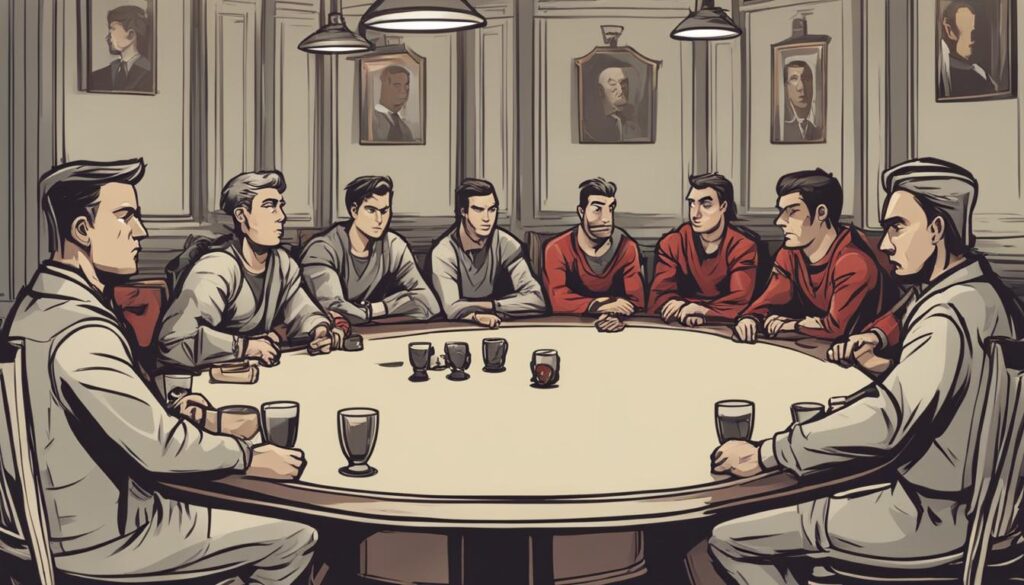
Implementing this clue strategy tip can improve your clue solving skills and make the game more challenging and engaging for everyone involved.
Try to Play as Mrs. Peacock
When it comes to choosing a character in the board game version of Clue, playing as Mrs. Peacock can give you a strategic advantage. The starting location of Mrs. Peacock is closer to the Conservatory, which allows her to enter a Room and make a suggestion earlier than other characters. This gives you the opportunity to gather information faster and potentially solve the mystery sooner.
By selecting Mrs. Peacock, you can optimize your clue strategy by taking advantage of her starting position. This can give you an edge over other players and increase your chances of discovering the truth behind the crime.
Playing as Mrs. Peacock not only provides a strategic advantage but also adds an exciting element to the game. As you navigate through the rooms and make suggestions, you’ll feel like a true detective on a mission to solve the mystery.
Benefits of Playing as Mrs. Peacock:
- Early access to key rooms
- Opportunity to make suggestions sooner
- Potential to gather information faster
- Increased chances of solving the mystery
Playing as Mrs. Peacock in Clue is like having a head start in the race to uncover the truth. With her strategic advantages, you’ll be one step ahead of the other players, putting your clue-solving skills to the test.
Remember, while playing as Mrs. Peacock can provide a valuable advantage, it’s important to combine this strategy with other effective clue strategies. A well-rounded approach that includes proper recordkeeping, note-taking, and making bold suggestions will greatly enhance your chances of solving the mystery and emerging as the winner.
| Advantages of Playing as Mrs. Peacock |
|---|
| Early access to key rooms |
| Opportunity to make suggestions sooner |
| Potential to gather information faster |
| Increased chances of solving the mystery |
Preparation and Scoresheet Setup
Properly preparing your scoresheet before the game begins is crucial for effective clue strategy. By setting up a well-organized and detailed scoresheet, you can enhance your ability to make deductions and solve the mystery. Follow these steps to prepare your scoresheet:
1. Scoresheet Header
Start by creating a clear header for your scoresheet. Include the name of the game, “Clue,” at the top, followed by the date and the names of all the players participating in the game.
2. Filling in the Player Columns
Next, create columns for each player. In the first row of each column, write the name of the player. In the subsequent rows, record the information related to each player’s cards. This includes the cards they hold in their hand and the cards shown to them by other players during the game.
| Player | Hand | Cards Shown |
|---|---|---|
| Player 1 | Colonel Mustard Library Wrench | Professor Plum Dining Room Candlestick |
| Player 2 | Miss Scarlet Conservatory Rope | |
| Player 3 | Reverend Green Billiard Room |
3. Using the Notation System
To track which cards each player may hold, you can use a notation system. Assign a symbol or mark for each card category (characters, rooms, and weapons) and use these symbols to indicate whether a player has shown a card of that category or not. This notation system helps you eliminate possibilities and make deductions as the game progresses.
Example: In the notation system, you could use a checkmark (√) to indicate that a player has shown a character card, and a dash (-) to indicate that they have not shown a character card.
With a well-prepared scoresheet, you’ll have a clear overview of the game’s progress and the information available to each player. This will enable you to make more informed decisions, narrow down the possibilities, and ultimately solve the mystery faster.
Taking Detailed Notes
Taking detailed notes throughout the game is a crucial clue strategy technique that can greatly improve your clue solving skills. By keeping thorough records of suggestions, card exchanges, and player actions, you can better track information and make informed decisions. Effective note-taking is the key to success in Clue.
The Importance of Note-Taking
Note-taking allows you to keep track of all the clues and information that is revealed during the game. It helps you organize your thoughts and ensures that you don’t miss any important details. By jotting down the suggestions made by other players and the cards they show, you can start to eliminate possibilities and narrow down the possible solutions.
“The key to solving the mystery in Clue is paying attention to the little details. Taking notes is like putting together the pieces of a puzzle, helping you see the bigger picture.”
Tips for Effective Recording
To maximize the effectiveness of your note-taking, consider the following techniques:
- Create a clear and easy-to-read format: Use a table or a well-organized layout to ensure that your notes are clear and legible. This will make it easier for you to reference them later in the game.
- Use symbols and abbreviations: Develop a system of symbols and abbreviations that will allow you to write down information quickly. For example, use an arrow to indicate a card shown to a player or a checkmark to indicate a possibility that has been eliminated.
- Update your notes regularly: Continuously update your notes to reflect the latest information obtained during the game. This will help you keep track of the changing dynamics and avoid confusion.
An Example of a Well-Organized Notes Table
Here’s an example of a table that can be used to record information during a Clue game:
| Player | Possible Cards | Cards Seen |
|---|---|---|
| Miss Scarlett | Knife, Study, Billiard Room | Revolver |
| Col. Mustard | Candlestick, Lounge, Library | Conservatory |
| Prof. Plum | Lead Pipe, Dining Room, Kitchen | |
| Mrs. White | Rope, Hall, Ballroom | |
| Mr. Green | Wrench, Ballroom, Dining Room | |
| Mrs. Peacock | Revolver, Conservatory, Ballroom | None |
When filling out the table, list the possible cards each player could hold based on the suggestions made and the information revealed. In the “Cards Seen” column, note the specific cards that have been shown to each player. This table will help you visualize the distribution of cards and make deductions based on the information available.
By taking detailed notes and applying effective note-taking strategies, you’ll improve your clue strategy techniques and enhance your clue solving skills. Keep track of every clue, use symbols and abbreviations for faster recording, and maintain an organized format to stay on top of the game. With thorough note-taking, you’ll be one step closer to solving the mystery in Clue.
Making Bold Suggestions
Making bold suggestions during the game can be a powerful clue strategy technique to confuse other players and gather valuable information. By vocalizing your suspicions, you can push the boundaries of the investigation and potentially uncover critical clues. Here are some clue strategy tips on how to effectively make bold suggestions and master your clue strategy:
Advantages of Vocalizing Suspicions
When you vocalize your suspicions during the game, you introduce uncertainty and ambiguity, making it harder for other players to pinpoint your strategy. By keeping other players on their toes, you increase the likelihood of them revealing additional information or making mistakes that can benefit your investigation. Remember, confident and well-timed bold suggestions can significantly influence the dynamics of the game.
Using Deception to Your Advantage
Deception can be a powerful clue strategy technique when making bold suggestions. By intentionally suggesting cards that you already possess, you can mislead other players and throw them off track. This can create confusion and divert their focus away from the actual solution. However, be cautious when using deception, as skilled opponents may see through your ruse and use it against you.
The Importance of Making Suggestions at Every Turn
In Clue, each turn presents an opportunity to gather new information. Making suggestions at every turn keeps the game moving forward and gives you more chances to acquire valuable clues. Even if you are uncertain about the accuracy of your suggestions, the process of elimination can help narrow down the possible solutions. Additionally, making regular suggestions can put pressure on other players to respond, potentially revealing useful information.
“Bold suggestions can unsettle even the most seasoned players, creating an environment of uncertainty that can work to your advantage.” – Detective Holmes
To illustrate the effectiveness of bold suggestions, let’s take a look at an example scenario:
| Player | Suggestion | Responses |
|---|---|---|
| Player 1 (You) | I suggest it was Colonel Mustard with the Candlestick in the Kitchen. |
|
In this scenario, your bold suggestion has eliminated Colonel Mustard and the Kitchen as possibilities. The lack of response from Player 4 indicates that they may hold the Candlestick card, potentially confirming part of your suggestion. This information can inform your future moves and help you narrow down the true solution to the mystery.
Mastering the art of making bold suggestions requires practice, intuition, and a willingness to take risks. By leveraging the advantages of vocalizing suspicions, using deception strategically, and making suggestions at every turn, you can become a formidable detective in Clue. So don’t be afraid to think outside the box, challenge other players, and boldly pursue the truth!
Conclusion
Mastering the strategy of Clue can be a challenging but rewarding endeavor. When playing this classic board game, employing effective clue strategies is essential in improving your clue solving skills. By following a clue strategy guide, practicing clue strategy tips, and implementing proper techniques, you can increase your chances of solving the mystery and coming out victorious.
One key aspect of clue strategy is proper recordkeeping. Take detailed notes throughout the game, noting each suggestion made and the cards shown to each opponent. This information will help you make informed decisions and track important information.
In addition to recordkeeping, making bold suggestions can be a valuable strategy. By expressing your suspicions and using deception to your advantage, you can gather important insights from other players’ responses. Remember to play fair, avoid unsportsmanlike behavior, and enjoy the thrilling experience of crime sleuthing deduction in Clue!

As the founder of Friends Game Night, Ryan channels his enthusiasm for gaming into a platform that celebrates the magic of gathering friends around the digital or physical tabletop. Through his website, Ryan shares insightful articles, reviews, and recommendations, aiming to inspire others to create their own memorable gaming moments.
Subscribe to Our Newsletter

